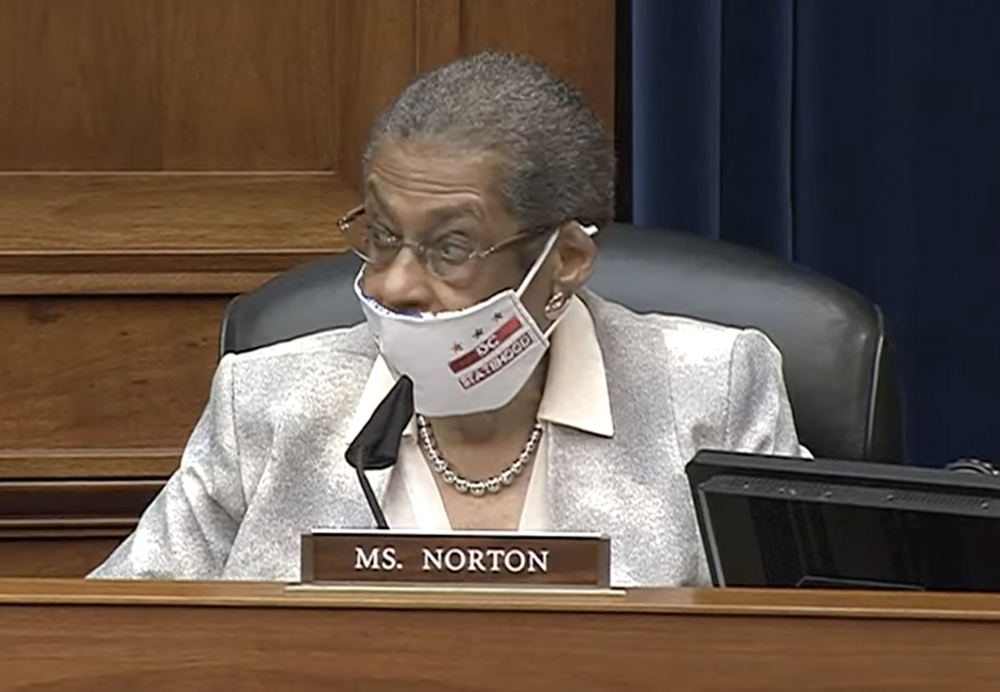A House panel on Wednesday approved a bill granting statehood to the District of Columbia, setting the stage for a full House floor vote as early as next week.
After hours of debate, the House Oversight and Reform Committee voted 25-19 along party lines to send the symbolically numbered H.R. 51 to the House, where a similar measure passed last year.
The Washington, D.C. Admission Act not only would make the District the 51st state, but also would name the state Douglass Commonwealth, give it two U.S. senators and a representative in the House and award it three electoral votes for presidential elections.
“The United States is the only democratic country that denies both voting rights in the national legislature and local self-government to the people of its capital,” the panel’s chairwoman, Rep. Carolyn Maloney, D-New York, said. “That is wrong. It violates everything we stand for as Americans.”
The bill was introduced earlier this year by Del. Eleanor Holmes Norton, a Democrat and Washington’s non-voting House member, who has been an outspoken supporter of statehood for the nation’s capital.
“Congress can no longer exclude D.C. residents from the democratic process, forcing residents to watch from the sidelines,” Norton told the committee. “Democracy requires more. D.C. residents demand much more.”
Rep. Jamie Raskin, D-Kensington, argued that the country is disenfranchising District voters by not giving the city’s 712,000 residents representation in Congress.
“The Constitution is not a straight jacket, it’s a freedom document,” Raskin said. “It’s about making sure all citizens can participate on the plane of political equality.”
Raskin, attempting to find a middle ground with Republican committee members, suggested making Puerto Rico and the District states at the same time.
Reps. James Comer, R-Kentucky, and Jody Hice, R-Georgia, called the bill unconstitutional and a ploy by the Democratic Party to gain two more Democratic senators.
“There is zero chance that this bill will pass judicial review,” Comer said. “The courts know better, the Senate knows better.”
Comer proposed an amendment to the bill, calling for a repeal of the 23rd Amendment, which allows District residents to vote for the president and vice president. Without repealing that amendment first, Comer said, the nation’s capital would technically have six electoral votes.
That sparked a heated debate between Raskin and Hice about disenfranchisement of voters, particularly people of color, and about the controversial voting law passed by the Georgia state legislature in March.
“You don’t disenfranchise the people you don’t agree with, but that has become the M.O. of our friends across the aisle,” Raskin said.
Rep. Byron Donalds, R-Florida, also questioned the bill’s constitutionality.
“We are making a gross, political assumption because we don’t want to deal with the Constitution first,” Donalds said.
If, as expected, the House approves the District statehood bill, it faces a more difficult path in the closely divided Senate. Even though the Democrats control the majority there with 50 votes plus Vice President Kamala Harris, statehood would require 60 votes to pass.

